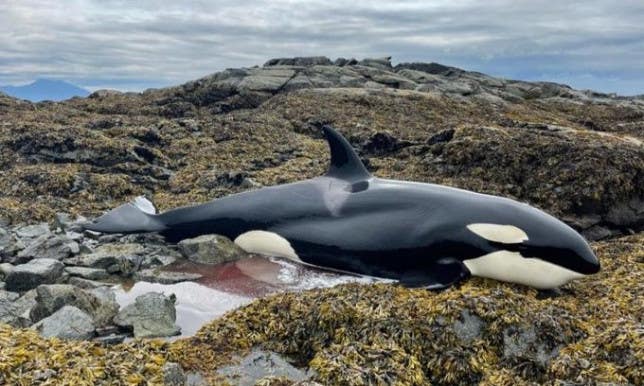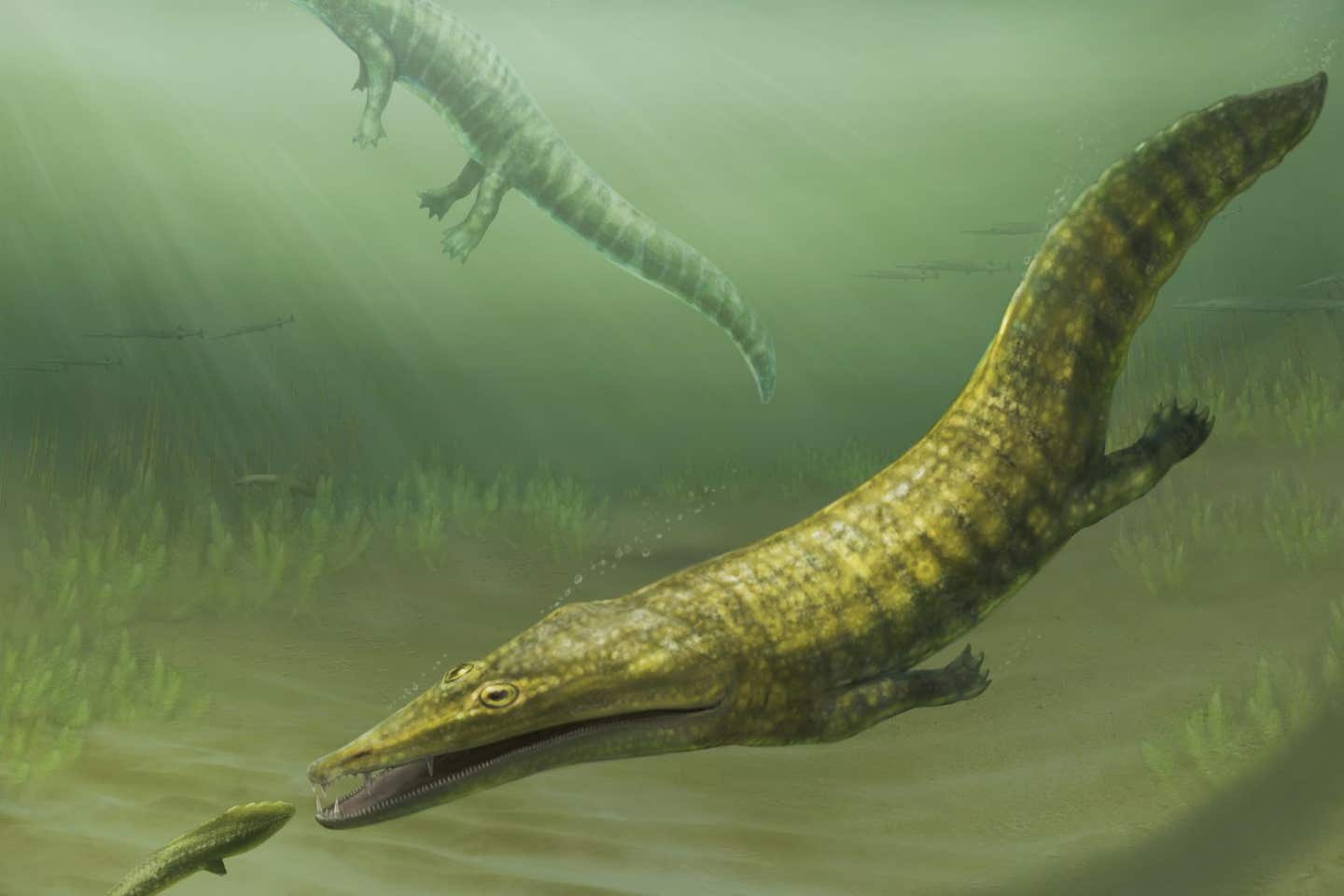Good Samaritans help stranded killer whale survive
Boaters in Alaska came across a 20-foot killer whale stuck on a rocky shore just off Prince of Wales Island in South East Alaska.

[Aug 4, 2021: The Brighter Side of News]
Boaters in Alaska came across a 20-foot killer whale stuck on a rocky shore just off Prince of Wales Island in South East Alaska, according to Julie Fair, a spokeswoman for the National Oceanic and Atmospheric Administration.
Chance Strickland, the captain of a private yacht in Alaska, and his crew noticed the orca in trouble leapt into action. They anchored their yacht and hustled ashore to spray the whale with seawater. They kept at it for over for over 6 hours. The mist kept the whale cool and scared away birds that had gathered nearby in the trees, waiting for a chance to eat the orca alive.
The orca seemed to liven up after getting its first taste of water and began thrashing its tail and making noises. Strickland could hear the orca calling out to other killer whales swimming in the area.
“I don’t speak a lot of whale, but it didn’t seem real stoked,” he said.
People on other boats helped bring buckets of water to douse the orca. “There were tears coming out of its eyes,” he said. “It was pretty sad.”
The tide finally came in around 2 p.m. local time, NOAA said, and the seawater eventually rose high enough that the whale, known as T146D, was floating again.
The crew hoped the rising tide would float the whale, freeing it to make its way back out to sea. They were right!
'It moved a bit slowly at first, and meandered around a little before swimming away', according to Julie Fair, a spokeswoman for the NOAA.
Local conservation and research group Bay Cetology identified the individual whale as a 13-year-old juvenile code-named T146D by scientists. The group also noted that T146D is part of the West Coast population of what are known as transient or Bigg’s killer whales, which specialize in hunting marine mammals such as sea lions.
The group goes on to cite research showing that this type of killer whale has been known to strand itself on occasion, adding that some of the documented strandings occurred as a result of the whales’ pursuit of prey near shore. All but one of the killer whales in the prior strandings survived.
An 8.2-magnitude earthquake had hit southern Alaska the day before, but it’s not believed it caused the whale to be stranded.
For more international good news stories check out our Global Good section at The Brighter Side of News.
Like these kind of feel good stories? Get the Brighter Side of News' newsletter.
Tags: #Good_News, #Mammals, #Animal_Rescue, #Kindness, #The_Brighter_Side_of_News



